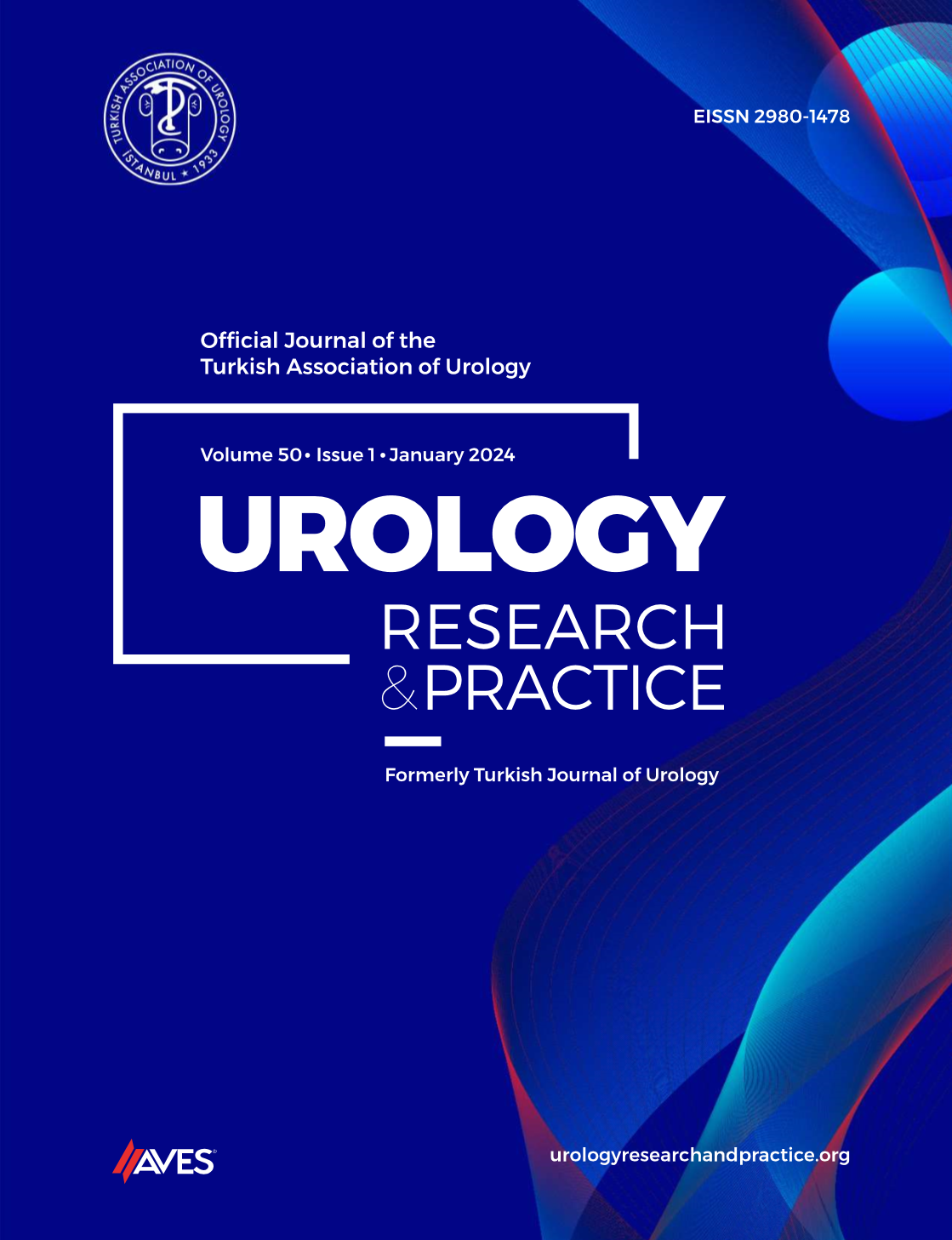Abstract
Objectives: Systemic chemotherapy is a standard treatment option for patients with transitional cell carcinoma with advanced disease or who have disease progression after initial local treatment. In advanced transitional cell carcinoma different chemotherapy protocols can be used. The combination of methotrexate, vinblastine, doxorubicine and cisplatin (MVAC) is one of the most widely used regimen with reported response rates of 35% to 70%. However this treatment is associated with significant toxicity. New chemotherapy protocols are begun to be used to increase the efficacy of chemotherapy and decrease toxicity. After it has been proved by pre-clinical studies that gemcitabine has synergistic effect with cisplatin, gemcitabine has been started to be used in many cancer types’ therapy, including bladder cancer. In this study we gave Gemcitabine+Cisplatin (GC) chemotheraphy protocol to 13 advanced transitional cell carcinoma patients and we evaluated the bone marrow toxicity due to chemotheraphy.
Material and Methods: Between May 2001 and May 2002 in our clinic we used GC chemotherapy protocol in 13 male patients who had advanced transitional cell carcinoma. Mean age value was 67 (range between 52 and 79). Of these 13 patients 2 had liver metastasis, 2 had pulmonary metastasis, 1 had bone metastasis and 3 had local invasion. We gave neoadjuvant chemotherapy to 3 patients adjuvant chemotheraphy to 2 patients. According to TNM classification 5 patients were stage T4N3M1, 7 patients were T3bN0M0 and 1 patient was T3bN1M0. We gave 4 cyles chemotheraphy -one cure is 28 days- to all of the patients. On the 1st,8th and 15th days we gave gemcitabine 1000 mg/m² and on the 2nd day we gave cisplatin 70 mg/m².
We analyzed the hemograms, liver function tests and renal function tests of every patient before and after the treatment. Granulocyte stimulation factors, granulocyte –macrophage stimulation factors, RBC transfusion and platelet transfusion were given to patients with anemia, leucopenia and thrombocytopenia. All the adverse effects during chemotherapy were noted and body temperatures of the patients were followed up. The toxicities were evaluated according to WHO toxicity criters.
Results: In 3 patients (23%) bone marrow toxicity was observed. Gastrointestinal adverse effects were seen in 4 patients (30%) during chemotheraphy. In patients with bone marrow toxicity, 1 patient had grade 4, 2 patients hade grade 3 thrombocytopenia and 1 patient had grade 3 anemia. One patient died because of cardio-pulmonary arrest.
Conclusion: GC chemotherapy protocol is a very tolerable and effective treatment for transitional cell carcinoma; with less bone marrow toxicity.

.png)


.png)